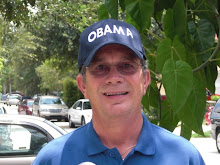
Jonathan Petre
On religion
From the blogs of telegraph.co.uk
02 March 2007
Now that the dust is settling, is it possible to make any sense of what happened last Wednesday evening at the Church of England’s General Synod?
The Church’s “Parliament”, which gathered in the Church’s ivy-veined headquarters in Westminster this week, held two debates on contrasting private members’ motions on homosexuality on what was dubbed “gay” Wednesday.
The first represented a mild shift towards the liberal position by accepting that homosexuals should be included as equals in further dialogue about their place in the Church.
But the outcome of the second, initiated by the Rev Paul Perkin, an evangelical from south west London, was so ambiguous that even Synod members were initially left shaking their heads in bewilderment.
Mr Perkin’s motion denounced the House of Bishops’ 2005 pastoral guidance on civil partnerships as a “recipe for confusion” by appearing to lend moral credence to such partnerships even though they are widely regarded as the equivalent of gay marriage.
The guidance allows clergy to enter into civil partnerships on the proviso that they first reassure their bishop that they would abstain from sex, thereby remaining faithful to Church teaching.
But the bishops have since failed to discipline anyone who has breached their guidance. The thrust of Mr Perkin’s motion was designed to expose their impotence and to try to provoke a more virile approach.
But this did not happen. The House of Bishops’ tabled a blander, more acceptable alternative, aimed at winning an endorsement of its pastoral guidelines while neutralising any significant criticism of them.
Sadly for the House of Bishops, however, its strategy also backfired. An unholy alliance of liberals and conservatives amended its amendment, removing its self-congratulatory if modest description of its own guidance as a “balanced and sensitive” attempt to square Church teaching with the law.
The final motion adopted by the Synod merely acknowledged “the diversity of views within the Church of England on whether Parliament might better have addressed the injustices affecting persons of the same sex wishing to share a common life had it done so in a way that avoided creating a legal framework with many similarities to marriage”. It also noted “the intention of the House to keep their Pastoral Statement under review”.
On the face of it, this does not seem to say very much, though it leaves the bishops’ guidance in a more than questionable state. The conservatives clearly didn’t get their way, but nor did anyone else. Surely, then, the only conclusion is that nothing really substantial had happened. However, the tone of the debate has left conservatives seething and liberals celebrating.
What really angered conservative evangelicals was the way that openly gay clergy, whose behaviour appears to be in blatant breach of official Church policy, felt able to stand up in the Synod and talk publicly and unapologetically about their physical relationships with no fear of retribution. To the conservatives, no clearer indication of the bishops inability or unwillingness to act could be imagined.
One evangelical member of the Synod, Alison Ruoff, has reflected this strand of thinking in a letter to the Daily Telegraph.
“For me, Wednesday in General Synod was a grim day for the Church of England,” she writes. “Although on the face of it, things might have been worse, when looking at the texts that have come from the debates.
“However, some of the speeches that were made, particularly from members of the clergy, were in many ways truly shocking. No longer is there any shame about anything. Descriptions of ‘loving partnerships’, including the mention of sex, was par for the course. The bishops sat there unmoved. Yet some 10 years ago clergy would have not only have been disciplined but ‘unfrocked’”.
Other evangelicals commented that the Church of England was now heading inexorably down the same path as the liberal Episcopal Church, a somewhat paradoxical situation given the firm stance adopted by the Archbishop of Canterbury, Dr Rowan Williams, following Tanzania.
Liberals also sensed a real shift in the Church of England’s mood on gays and civil partnerships in their direction.
InclusiveChurch, the liberal pressure group, issued a press release under the heading of “a good day for the Church of England”, saying that it hoped that the debates reflected “a new understanding and respect for differing theological positions about lesbian and gay people within and outside the Church”.
It said that the motion on civil partnerships showed that “the present arrangements are not working”, and called for same-sex blessings and the appointment of gay bishops.
The Rev Giles Fraser, the liberal vicar of Putney in south London, summed up this view. “It seemed to me that the ground shifted,” he said. “There was no appetite in the Synod for going back.”
So what seemed on the surface to be a confusing stalemate might in fact have been be a paradigm shift. It will be fascinating to see how the tectonic plates collide in the coming months, and whether the House of Bishops can contain the shockwaves.
Posted by Jonathan Petre at 02 Mar 07 20:21



No comments:
Post a Comment